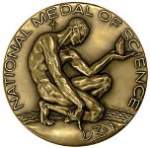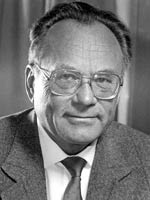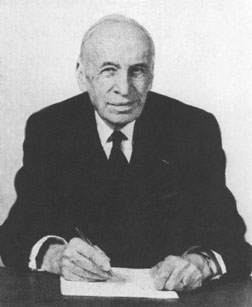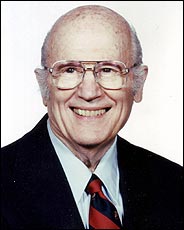Konrad Emil Bloch National Medal of Science Awarded In 1988

Konrad Emil Bloch
Award Name : National Medal of Science
Year of Award : 1988
Award for : Chemistry
Location : Nysa, Opole Voivodeship, Poland
Konrad Emil Bloch was a German American biochemist. Konrad E. Bloch was born on 21st January 1912, in Nysa, Poland. In America he enrolled at Columbia University and received a Ph.D. in biochemistry in 1938. He taught at Columbia from 1939 to 1946. From there, he went to the university of Chicago and then to Harvard University as Higgins Professor of Biochemistry in 1954, a post he held until his retirement in 1982. In 1985, Bloch became a Fellow of the Royal Society. In 1988, he was awarded the National Medal of Science. In 1942 Bloch and David Rittenberg discovered that the two-carbon compound acetic acid was the major building block in the 30 or more steps in the biosynthesis of cholesterol, a waxlike alcohol found in animal cells. In his search to determine how acetic acid molecules combine in this process, Bloch was also joined by Feodor Lynen and his collaborators in Munich and Sir John Warcup Cornforth and George Popjak in England. Their discovery facilitated medical research on the relation of blood cholesterol levels to atherosclerosis, research in physiology, and research on the chemistry of terpenes, rubber, and other isoprene derivatives. He died on October 15, 2000 in Lexington, Massachusetts, United States.









